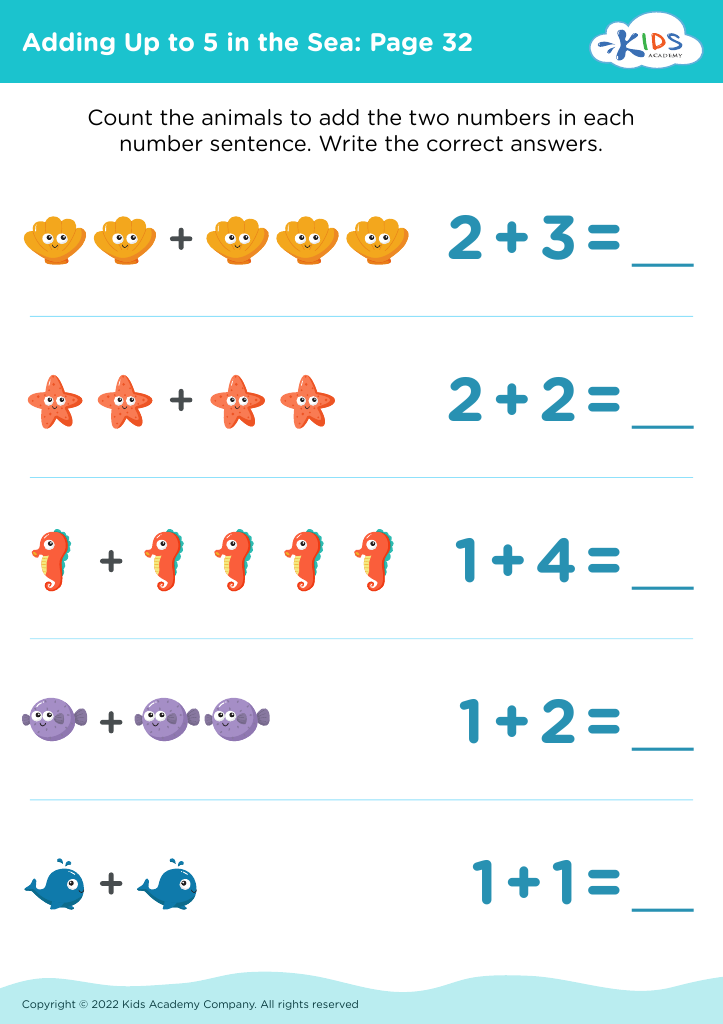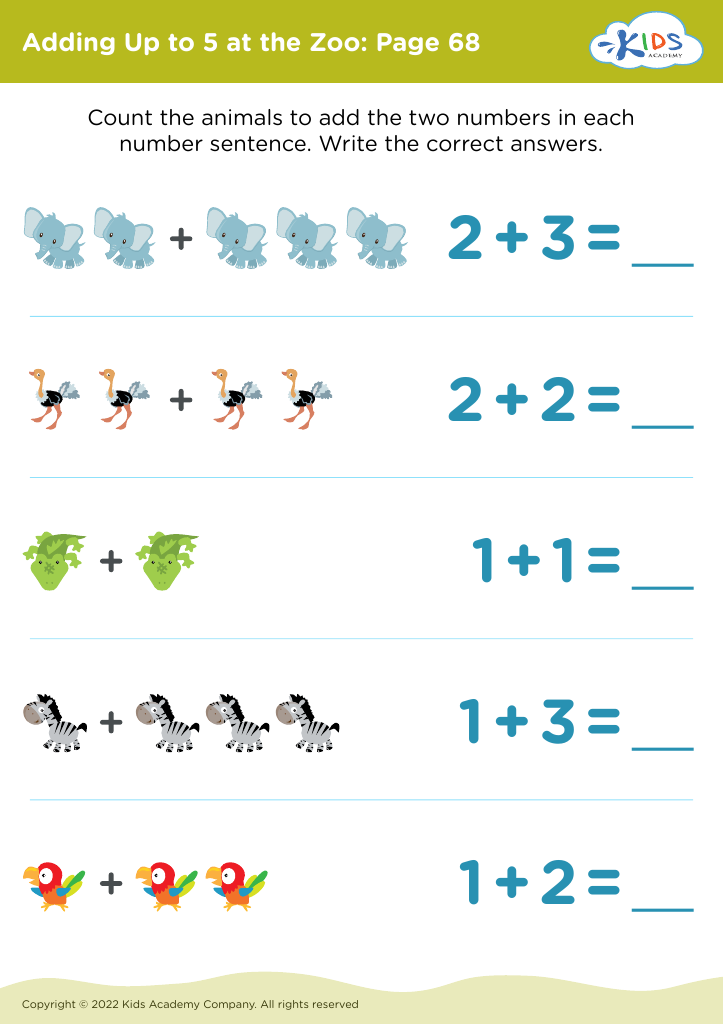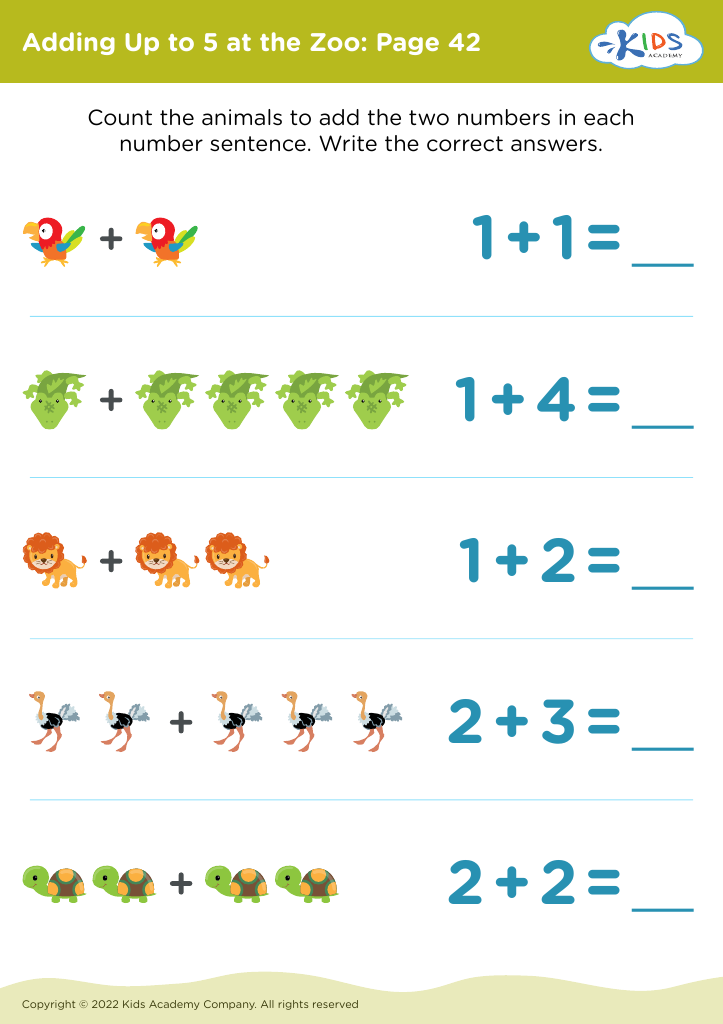Following instructions Adding Up to 5 Worksheets for Ages 3-9
3 filtered results
-
From - To
Welcome to our Following Instructions Adding Up to 5 Worksheets, designed specifically for children aged 3 to 9! These engaging worksheets help young learners develop essential math skills by adding numbers up to 5 while following simple instructions. Our carefully crafted activities promote critical thinking and comprehension as children learn to interpret directives and solve problems. With colorful visuals and playful themes, these worksheets make learning fun and interactive. Perfect for home or classroom use, they support early math education while nurturing the ability to follow instructions. Start your child's math journey today with our fun and educational resources!
Following instructions, particularly for activities like "Adding Up to 5," is crucial for children aged 3-9 for several reasons. Firstly, mastering this foundational math skill nurtures cognitive development. Understanding numbers and calculations helps children grasp more complex mathematical concepts in later years.
Moreover, following instructions enhances children’s listening and comprehension abilities. When they learn to accurately follow steps, it cultivates essential executive function skills such as attention, memory, and organization. These skills are vital not only in math but across all subjects and life scenarios.
Additionally, fostering the ability to follow instructions prepares kids for real-world situations. For example, when engaging in everyday activities, such as cooking or crafting, being able to comprehend guidelines is essential to successful outcomes. Routines created through such practices promote discipline and responsibility.
For parents and teachers, encouraging a focus on completing tasks like "Adding Up to 5" also equips children with a sense of accomplishment and boosts self-esteem. Celebrating milestones, such as successfully solving problems, reinforces a positive learning experience. Ultimately, nurturing these skills lays a strong academic foundation, empowering children to tackle future learning challenges with confidence.











.jpg)









